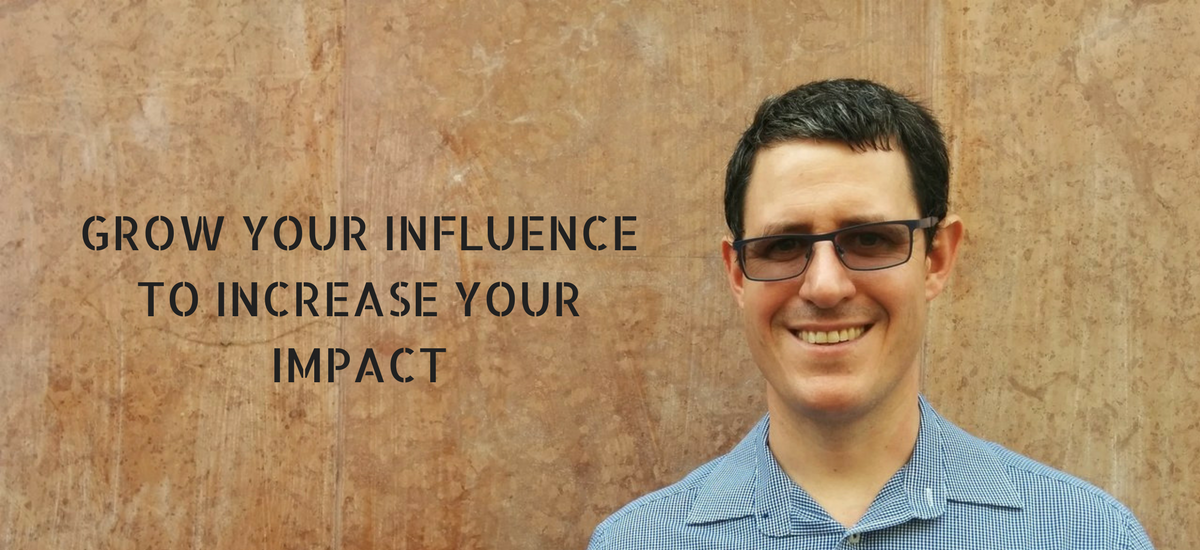
While preparing to launch The Influence Expert I wrote this article back in November 2015. It had a really positive response (which encouraged me that this is a topic people are interested in).
It has developed into my core model, the LEAPS model. While I have developed my thinking since I published it, I still think it is worth sharing with you:
All of us would like to have more influence– over our careers, over the causes we care about and perhaps for the more ambitious, over the direction of the whole world.
People who have influence get more done, more quickly, with less effort.
How can we be more like them?
I’d briefly like to explore 5 areas that I think can be used to increase influence:
- 1- ‘Likeability’
By this, I mean two main things. Firstly, how you are generally perceived by others. Do you seem like an approachable, friendly person? Do you help other people? Do you leave others feeling uplifted or disheartened? Are you the sort of person people gravitate towards or shy away from? Note this doesn’t mean that you have to be the most charismatic person in the world, just that you have to be pleasant and interested in others.
Secondly, are you good at finding common ground with other people? Suppose you go to an event where there is an opportunity to meet new people. If you are introduced to someone who on the surface you have very little in common with, can you find something that you can enjoy discussing together? For example, perhaps you are both passionate about a professional subject or have a shared hobby. Or, if you really have no points of similarity, can you steer the conversation in a way that the other person will enjoy and which allows you to get to know them as a real human being? Sometimes you will meet people whose brilliance you are intimidated by, but if you get them onto their pet subject: from their favourite band to flower arranging, they will relax, you will relax and you will both enjoy the chat and remember it fondly.
Also it might seem simple, but things like thanking other people, particularly if you are prepared to do so publicly, makes a difference. It it is good to be able to show that our successes are never due to us alone but to many amazing people who believe in us.
- 2- Networks
I believe networks are crucially important to a person’s influence, but that the size is less important than the quality. After all if you only had three close professional contacts but two of those were Barack Obama and the Dalai Lama, it is probable that you would have some influence!
You need to be mindful of both your online and offline networks. For online, I am a huge advocate of LinkedIn.
Please note that no one is saying that you have to love networking. I do, but many, many people don’t. You just have to recognise that it is important. If you don’t enjoy it much, here are some tips that might help. Whatever you do, try to build real connections over time, don’t just shove your business card in people’s faces!
It is of course important to see your networks as not just being about you. Do you know two people who might be able to help/support each other? One of my greatest pleasures in the world is introducing people more brilliant than I am to other people more brilliant than I am and then standing back and watching the magic take place.
- 3- Personal branding
A lot of people dislike the term ‘personal branding’. I think it is for two main reasons, firstly because on the surface it sounds a bit arrogant and secondly because people don’t like the idea that they can be packaged up as if they were a bar of soap or a tube of toothpaste.
The crucial thing to realise though is that you don’t really have a choice about whether you have a personal brand, everyone has one. If you lived as a hermit and took a vow of silence, your personal brand would be the silent hermit. If your only appearance online is via one particular social media site, say Facebook, that is your online personal brand. If you are not on Facebook, that choice is part of your personal brand too.
After all, other people will look for you online, including people you are meeting for the first time, interviewers for jobs and people buying your products and services.
Considering then, that we all have a personal brand, (of course, you can use a different term if you prefer), isn’t it better to control our brand in the way that we want and to strengthen it in the areas that are important to us? Otherwise we risk others forming a very different impression of ourselves to the one we would like to convey. A strong personal brand can be a really good way to build our influence. After all, if you think of the people in the world who seem most influential: is their brand not strong as well?
Having your own website is a great way to control your personal brand, as is using social media effectively.
Personal branding is growing in importance as a) the world becomes a more competitive place and we need to find ways to differentiate ourselves and b) traditional jobs continue to be eroded with people wanting more freedom (I’m with them).
- 4- Expertise
What are you known for? What do you want to be known for?
An important way to gain influence is to be seen as an expert in a particular field. If you are not sure what you are an expert in, think about what it is that people come to you for advice about, on either a professional or a personal basis. Being an expert does not mean that you need to be the number one person in the world at something (and after all, in most industries, how would anyone measure that?) but that you have one or more areas that you excel at and focus on.
People who have expertise and know how to make others aware of it are the ones that have most influence and the most opportunities to display that influence. For example, if you are clearly an expert in a certain field you are more likely to be asked to give speeches, (you might find the tips here useful if you are scared of public speaking) to contribute articles and to give comments on newsworthy topics.
- 5- Authenticity
This is quite a buzzword at the moment. Generally, people both like and admire people who they perceive to be authentic.
Are you presenting your authentic self to the world? Or, are you constantly biting your tongue, putting on an act or keeping your true feelings under wraps because you perceive that keeping your head down and conforming is the better career or life strategy?
If you aren’t being authentic other people are likely to notice it, at least in the long term. In the short term you might be able to sell them your idea or your product, but in the long term they are unlikely to spend repeated energy on you or recommend to others that they spend energy on you.
In addition, your lack of authenticity will have a personal cost. It will be stressful to maintain and you are less likely to be happy with who you are.
In order to be authentic, it goes without saying that you need to know what your authentic self is. A lot of people lead very busy lives and don’t give themselves the time to work out who they really are or what really matters to them. Personally I have found that travelling- and living abroad in three different countries- has given me insights into what is important to me and what I stand for that I would never have had if I had stayed in my home country.
So, we’ve covered Likeability, Networks, Personal Branding, Expertise and Authenticity.
If you examine each of these five areas in your own life hopefully you can see where you are doing well and where some action would be helpful.
To give my own example, I would like to focus more on how I show my authentic self. I think that I am good at not being different online compared to real life, for example. However, I think that I sometimes have stronger opinions about things than I lead people to believe- but don’t always voice them as I am too keen not to cause offence. I know that this isn’t right: both because I should find a way to do it without causing offence, but also because long term I might get frustrated if I don’t put forward my true views. Therefore I’m going to try to work on this area. Recent examples where I feel I have got it right are this video (it started off as an article where many people have commented that they were pleased I spoke out on this topic) and this interview with me, which I think is the most authentic one I have given so far- probably mainly due to the skill of the interviewer, but still!
In addition to this article about influence, I have also produced a podcast on this topic which you can listen to here. If you have your own examples of increasing your influence, or, if you can identify areas that you would like to work on, please leave them in the comments below- I would love to hear them.
To sign up to my email list and to for the chance to be entered into a contest, click this link!


Please note: I reserve the right to delete comments that are offensive or off-topic.